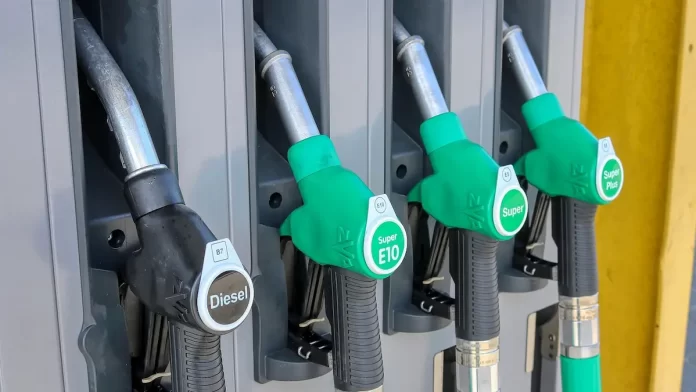Biodiesel, a renewable alternative to conventional diesel, has gained prominence globally due to its eco-friendly nature and potential to reduce greenhouse gas emissions.
As India continues its quest for sustainable energy sources, the exploration of biodiesel crops has become crucial.
This article delves deeper into the major biodiesel crops in India, their scope, significance, the challenges faced in their cultivation, and the government measures undertaken to promote their adoption.
Major Biodiesel Crops in India
Jatropha
Jatropha curcas, a hardy perennial shrub, stands out as one of India’s primary biodiesel crops.
It has garnered attention due to its drought-resistant properties and ability to thrive in poor soil conditions.
The oil-rich seeds of Jatropha are processed to produce biodiesel, making it a promising feedstock for India’s biodiesel industry.
Pongamia
Pongamia pinnata, commonly known as Karanj, is another significant biodiesel crop. Its high oil content and adaptability to diverse agro-climatic conditions make it an attractive option for biodiesel production.
Pongamia cultivation has the potential to provide multiple benefits, including improved soil fertility and increased carbon sequestration.
Mahua
Madhuca longifolia, or Mahua, is an indigenous tree with seeds rich in oil suitable for biodiesel production.
In addition to being an excellent biodiesel feedstock, Mahua has significant cultural and economic importance in India. Its cultivation contributes to rural livelihoods and promotes sustainable land use practices.
Scope and Significance
Biodiesel crops offer multiple benefits to India’s energy landscape. With an increasing demand for energy and concerns about the environmental impact of fossil fuels, biodiesel presents a viable alternative.
The cultivation of biodiesel crops provides a renewable source of energy, reduces the country’s dependence on imported fossil fuels, and mitigates the adverse environmental effects associated with traditional diesel.
The use of biodiesel can significantly lower carbon dioxide emissions, sulfur oxides, and particulate matter, contributing to cleaner air and reduced health hazards.
Moreover, as biodiesel is produced from domestic feedstocks, it enhances India’s energy security and reduces the vulnerability to fluctuating international oil prices.
Additionally, cultivating biodiesel crops can utilize marginal lands, which are otherwise unsuitable for food crop cultivation, thereby reducing the pressure on arable land.
This practice aligns with the principles of sustainable agriculture and helps address the challenge of balancing food and fuel production.
Challenges
Despite the potential advantages of biodiesel crops, several challenges persist, hindering their widespread adoption and commercialization.
Yield and Productivity: One of the significant challenges faced in biodiesel crop cultivation is achieving optimal yields to make it economically viable. The productivity of these crops varies significantly with the agro-climatic conditions, soil fertility, and management practices. To promote widespread adoption, efforts are needed to improve crop yields and ensure consistent productivity.
Land Use Conflicts: As the demand for land increases due to population growth and urbanization, conflicts arise between allocating land for food crops and biodiesel crops. Balancing the need for sustainable energy sources with ensuring food security is a critical concern that requires thoughtful policies and land-use planning.
Processing Infrastructure: The establishment of efficient and cost-effective processing facilities for converting biodiesel crops into biodiesel is essential. Developing a robust supply chain, including crushing and extraction units, refining plants, and storage facilities, poses a challenge, especially for small-scale farmers and entrepreneurs.
Investment and Financing: The successful cultivation of biodiesel crops requires significant investment, from research and development to infrastructure and commercial production. Attracting sufficient funding and financing for large-scale cultivation and processing remains a hurdle that needs to be addressed to unlock the full potential of biodiesel crops.
Government Measures
Recognizing the significance of biodiesel crops in India’s energy security and environmental sustainability, the government has taken several measures to promote their cultivation and utilization:
National Biodiesel Mission: In 2003, the government launched the National Biodiesel Mission with the aim of promoting the development of biodiesel feedstock and production technologies. The mission has primarily focused on Jatropha and Pongamia as potential biodiesel feedstocks. Extensive research and development initiatives have been undertaken to improve crop yields, develop sustainable cultivation practices, and establish viable biodiesel value chains.
Financial Incentives: Various financial incentives, such as subsidies and tax benefits, have been provided to farmers and industries involved in biodiesel production. These incentives aim to encourage increased investment and participation in the biodiesel sector.
Research and Development: Recognizing the importance of innovation in driving the biodiesel sector’s growth, the government has increased funding and support for research and development initiatives. These efforts focus on developing improved crop varieties, optimizing agronomic practices, and advancing biodiesel processing technologies.
Policy Support: The government has formulated policies to promote the use of biodiesel blends in transportation and other sectors. Mandating the blending of biodiesel with conventional diesel and providing regulatory support for its usage creates a demand for biodiesel, encouraging investment and market expansion.
Conclusion
Biodiesel crops hold immense potential in India’s quest for sustainable energy sources and environmental protection.
The cultivation of Jatropha, Pongamia, and Mahua, among others, can significantly contribute to reducing carbon emissions, improving energy security, and promoting rural development.
Despite challenges in yield, land use, infrastructure, and financing, the proactive measures taken by the government, coupled with continued research efforts, are paving the way for a greener and more sustainable energy future in India.
By promoting biodiesel crops, India can move closer to achieving its energy and climate goals while fostering rural prosperity and ecological sustainability.
